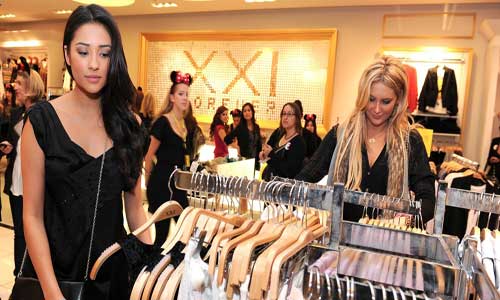"Deloitte recently published a report on millennials and their attitudes and purchase motivations in the luxury market. ‘Bling it on: What makes a millennial spend more’ reported American millennials trailed far behind the other markets in their purchases of high-end fashion or luxury goods. Over one-fourth of the American millennials report no luxury purchases of $500 or more in the last 12 months, whereas the survey average was only 16 per cent."

Deloitte recently published a report on millennials and their attitudes and purchase motivations in the luxury market. ‘Bling it on: What makes a millennial spend more’ reported American millennials trailed far behind the other markets in their purchases of high-end fashion or luxury goods. Over one-fourth of the American millennials report no luxury purchases of $500 or more in the last 12 months, whereas the survey average was only 16 per cent. If 26 per cent of millennials who are interested in luxury goods haven’t purchased any recently, which was reported by the Bain Luxury Study, it certainly doesn’t go down well for the future of luxury brands in the US, which is the world’s largest luxury market. Credit Suisse reports that there are 13.6 million American adults with a net worth above $1 million. That is over 40 per cent of the world’s millionaires and more than the next eight countries combined.
Millennials, informed buyers

The survey points out that this generation, thanks to the internet and how it has uncovered the ‘smoke and mirrors’ on which the allure of luxury brands is based, are discovering they can acquire luxury-quality goods at significantly lower prices. Today, status symbols as represented by luxury brands don’t have the same meaning for millennials. They still value status, but for them it is status defined by who they are and what they have achieved, not how much money they spent buying some overly-expensive luxury brand. Luxury is a state of mind, not a brand or a price point. Millennials still want luxury, but luxury that is consistent with their personal values.
As a result, a gap is growing between what the customers believe luxury to be and what the industry thinks it is, as discovered in the most recent ‘State of Luxury’ study conducted by Unity Marketing and Luxury Daily. There is an opportunity for luxury brands to re-examine their roots and rethink their offerings and messaging to reflect what the consumer is looking for.
Shifts in the demography and mindset of today’s luxury consumers has brought about profound changes in the way they shop and buy and how luxury fits into their lifestyle. Not to mention new competitors are fast and furiously emerging which are not bound by the traditions prevalent in the luxury industry, and which hamper established brands in this increasingly disrupted luxury market.
Ways for luxury brands to get their mojo
The Deloitte study highlights it is no accident that most successful challenger brands in the industry have their roots in digital and/or social media marketing aimed at millennial consumers. This calls on luxury brands to downplay the negative connotations associated with luxury and play up the positive attributes of luxury in brand new style and through brand new mediums. Brands must find ways to make their luxury relevant to millennials, not just using luxury as a label they should aspire to own but to convey true meaning and value to the customers.
Secondly, the great challenge for brand owners seeking to capture millennials is how to communicate to a generation with shifting preferences and loose brand loyalties, and for whom no single channel appears to predominate. Yet amid this apparent uncertainty, one factor that plays a role in almost every aspect of millennial consumption is the rise of online. The internet has pulled back the curtain of the luxury industry and the brands that participate there. It has changed how customers get information and how they make decisions. A powerful e-commerce presence is no longer optional for luxury brands. But Deloitte report stresses that online sales alone do not capture the full significance of the rise of online interaction.
Further, Deloitte found millennials don’t have brand loyalty that previous generations had. Nearly, 36 per cent, say they will buy what they like regardless of brand. They are more than willing to pay attention to brands with new stories to tell that are more aligned with their personal values and the values of their social circle. This is how new emerging luxury brands have gained traction with this generation. These challenger brands talk to the millennials in ways that are more meaningful and valuable to them.
In conclusion, a rising tide of millennial wealth could result in a new luxury boom starting in the middle of the next decade, but only if brands meet this new generation with luxuries that reflect their values and world view. However, if luxury brands keep doing what they’ve always done, putting status before substance, they will miss the mark. The world has changed and luxury brands must change with it.












